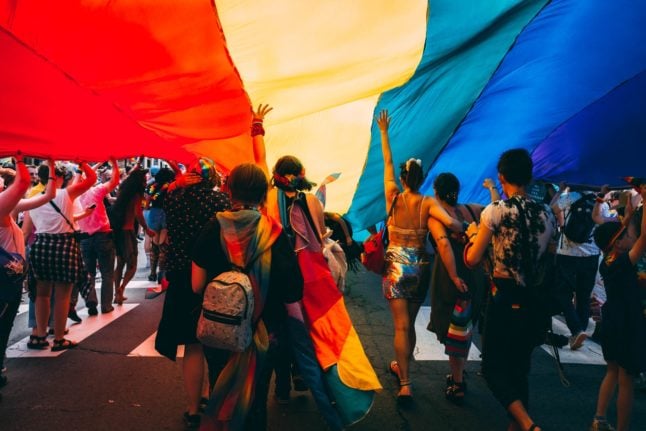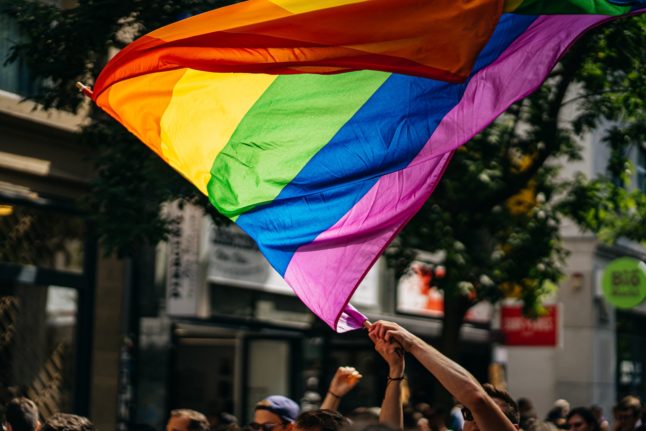Norwegian police have advised that Pride and LGBT events in Norway be postponed following a shooting on Saturday near a gay bar in central Oslo that left two dead and 21 injured.
The advice comes after the police suggested organisers of an LGBT solidarity event outside Oslo City Hall postpone until further notice. The recommendation came on the back of information it received from domestic intelligence and counter-terrorism service PST.
“Based on the information from PST and that the LGBT environment is a target for extremist Islamists, the police’s clear recommendation is that tonight’s pride event in Oslo is postponed and other events elsewhere in the country also be postponed until further notice,” Benedicte Bjørland, police director at the National Police Directorate, told public broadcaster NRK.
PST has said that it has concerns over the possibility of copycat attacks in the wake of last weekend’s shooting.
“We fear a follow-up action. We have seen cases of this in other countries, and it is not unusual for some to be inspired or for more people to have the same way of thinking as has happened here, and who may consider committing a new terrorist act in Norway,” Roger Berg, temporary head of PST, told public broadcaster NRK.
READ MORE: LGBT solidarity event in Oslo cancelled over police fears of copycat attacks
When asked by the broadcaster whether it had information relating to a specific threat, the intelligence service said it wasn’t willing to go into detail currently.
“As of now, I will not go into detail on what information we have. We have a large supply of information now, and we have nothing to indicate that something will happen in the near future, but we see that we are constantly receiving new information that allows this to change,” Berg said.
Following the shooting on Saturday, PST raised its terrorist threat level to five, which indicates an extraordinary threat situation. Before the shooting, the threat level was set to a “moderate terrorist threat”.
When it raised the threat level on Saturday, PST said, “The information we have so far does not indicate such actions (copycat attacks)”.
In Adger, police will assess the safety of events, focusing on LGBT ones, on Tuesday. In north Norway, police in Mo i Rana have recommended postponing a Pride event scheduled for Tuesday.
Despite the heightened threat level and the advice to cancel Pride events, PST has said that it isn’t dangerous to be part of the LGBT community in Norway.
“No, as a general rule, it is not (dangerous). We are a police force that will do everything to secure the safety of LGBT people in Norway, but we hypothesise that maybe the LGBT community was the target of the action (mass shooting on Saturday) we, unfortunately, saw,” Bjørnland told NRK on Tuesday.
Events across Norway to go ahead despite police recommendations
Haugaland Pride will go ahead, against police recommendations, while Trondheim Pride will also hold a solidarity event.
Organiser’s in Trondheim said they had been given the all-clear for the event in Trondheim to go ahead by local authorities.
“Here in Trondheim, we have been in a very tight dialogue with local police and the local security police here in Trondheim. They have told us that they have no knowledge of any actual local threat towards us in the Pride community in Trondheim,” Eivind Rindal from Trondheim Pride told The Local.
“They have recommended that we listen to their advice and not to the general advice (to postpone or hold off from events) from the Police Directorate, so we will go ahead as planned,” Rindal added.
Rindal said it was important for Pride and LGBT events to go ahead if it was safe to do so in light of Saturday’s mass shooting.
“It is very important that arrangements, pride parades and festivals all around Norway, especially this summer after the pandemic, go ahead and that the queer community isn’t pushed back into the closest,” Rindal said.



 Please whitelist us to continue reading.
Please whitelist us to continue reading.
Member comments